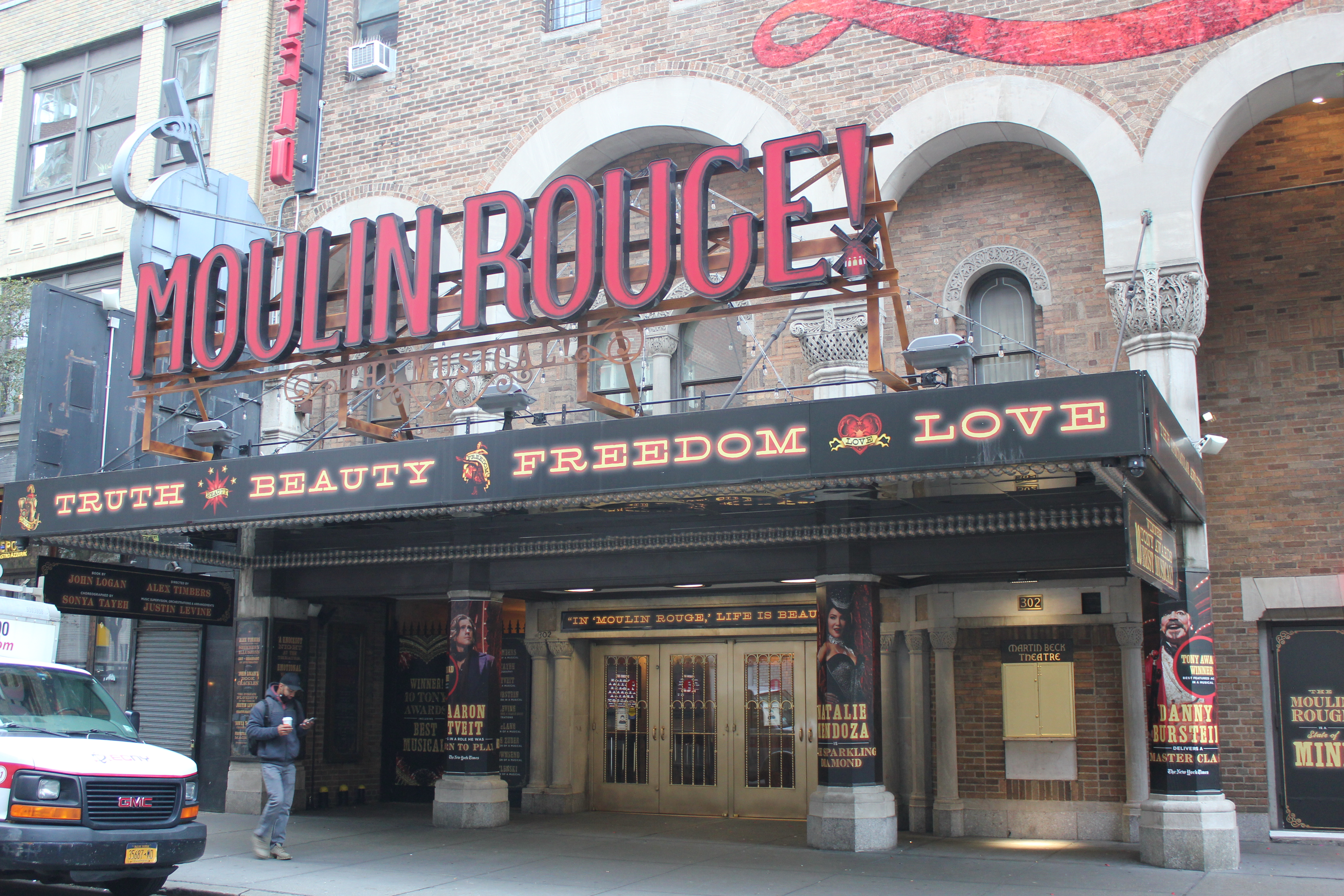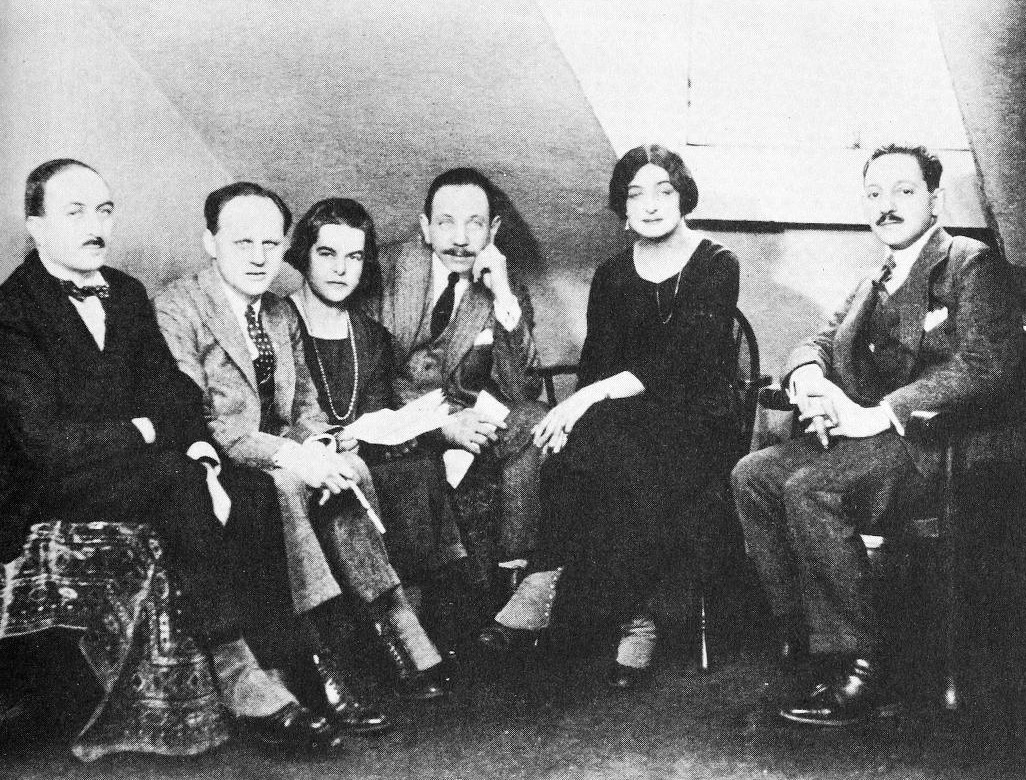|
The Curious Savage
''The Curious Savage'', written by John Patrick, is a comedic play about Ethel P. Savage, an elderly woman whose husband recently died and left her approximately ten million dollars. Contrasting the kindness and loyalty of psychiatric patients with the avarice and vanity of "respectable" public figures, it calls into question conventional definitions of sanity while lampooning celebrity culture. The play was first produced in New York by the Theatre Guild and Lewis & Young at the Martin Beck Theatre and opened October 24, 1950, with Lillian Gish in the role of Ethel. Peter Glenville directed the production. Plot Act l The play opens with the five residents of a sanatorium awaiting a new resident. The current residents of the sanatorium, called The Cloisters, function normally, excepting one small ailment. Fairy May (a plain girl who has difficulty telling fantasy from truth) sees herself as a person of great beauty. Jeff (a concert pianist and military veteran) believes that he ... [...More Info...] [...Related Items...] OR: [Wikipedia] [Google] [Baidu] |
John Patrick (dramatist)
John Patrick (May 17, 1905November 7, 1995) was an American playwright and screenwriter. Biography He was born John Patrick Goggin in Louisville, Kentucky. His parents soon abandoned him, and he spent a delinquent youth in foster homes and boarding schools. At age 19, he secured a job as an announcer at KPO Radio in San Francisco, California, marrying Mildred Legaye in 1925. He wrote over 1,000 scripts for the '' Cecil and Sally'' radio program (originally titled ''The Funniest Things''), broadcast between 1928 and 1933. The show's sole actors were Patrick and Helen Troy. In 1937, Patrick wrote adaptations for NBC's ''Streamlined Shakespeare'' series, guest-starring Helen Hayes. Produced on a tight budget, his first play, ''Hell Freezes Over'', directed by Joshua Logan, had a brief run on Broadway in 1935. However, the credit opened the door for him as a Hollywood scriptwriter. In 1942, a second play, ''The Willow and I'', was produced with Martha Scott and Gregory Peck in t ... [...More Info...] [...Related Items...] OR: [Wikipedia] [Google] [Baidu] |
Al Hirschfeld Theatre
The Al Hirschfeld Theatre, originally the Martin Beck Theatre, is a Broadway theater at 302 West 45th Street in the Theater District of Midtown Manhattan in New York City. Opened in 1924, it was designed by G. Albert Lansburgh in a Moorish and Byzantine style and was constructed for vaudevillian Martin Beck. It has 1,404 seats across two levels and is operated by Jujamcyn Theaters. Both the facade and the interior are New York City landmarks. The Al Hirschfeld's auditorium and stage house share a design for their facade. There is a double-height arcade with cast-stone columns at the base of the theater. The eastern section of the arcade contains the auditorium entrance, the center section includes a staircase with emergency exits, and the western section leads to the stage house. Red brick is used for the upper stories of the facade. Albert Herter, a muralist who frequently collaborated with Lansburgh, oversaw much of the interior design. A square ticket lobby is directly ins ... [...More Info...] [...Related Items...] OR: [Wikipedia] [Google] [Baidu] |
Celebrity Culture
Celebrity culture is a high-volume exposure to celebrities' personal lives on a global scale. It is inherently tied to consumer interests where celebrities transform their fame to become product brands. Whereas a culture can usually be physically identified, and its group characteristics easily observed, celebrity culture exists solely as a collection of individuals' desires for increased celebrity viewing. Celebrities themselves do not form a cohesive and identifiable group with which they identify themselves, but are rather found across a spectrum of activities and communities including acting, politics, fashion, sports and music. This "culture" is created when there is common knowledge within a society that people are interested in celebrities and are willing to alter their own lives to take part in celebrities' lives. The "culture" is first defined by factors outside of celebrities themselves and then augmented by celebrities' involvement within that publicly constructed culture ... [...More Info...] [...Related Items...] OR: [Wikipedia] [Google] [Baidu] |
Theatre Guild
The Theatre Guild is a theatrical society founded in New York City in 1918 by Lawrence Langner, Philip Moeller, Helen Westley and Theresa Helburn. Langner's wife, Armina Marshall, then served as a co-director. It evolved out of the work of the Washington Square Players. History Its original purpose was to produce non-commercial works by American and foreign playwrights. It differed from other theaters at the time in that its board of directors shared the responsibility of choosing plays, management, and production. The Theatre Guild contributed greatly to the success of Broadway from the 1920s throughout the 1970s. The Guild has produced a total of 228 plays on Broadway, including 18 by George Bernard Shaw and seven by Eugene O'Neill. Other major playwrights introduced to theatre-going Americans include Robert E. Sherwood, Maxwell Anderson, Sidney Howard, William Saroyan, and Philip Barry. In the field of musical theatre, the Guild has promoted works by Richard Rodgers, teame ... [...More Info...] [...Related Items...] OR: [Wikipedia] [Google] [Baidu] |
Lillian Gish
Lillian Diana Gish (October 14, 1893February 27, 1993) was an American actress, director, and screenwriter. Her film-acting career spanned 75 years, from 1912, in silent film shorts, to 1987. Gish was called the "First Lady of American Cinema", and is credited with pioneering fundamental film performance techniques. In 1999, the American Film Institute ranked Gish as the 17th greatest female movie star of classic Hollywood cinema. Gish was a prominent film star from 1912 into the 1920s, being particularly associated with the films of director D. W. Griffith. This included her leading role in the highest-grossing film of the silent era, Griffith's ''The Birth of a Nation'' (1915). Her other major films and performances from the silent era are: ''Intolerance'' (1916), '' Broken Blossoms'' (1919), ''Way Down East'' (1920), ''Orphans of the Storm'' (1921), ''La Bohème'' (1926), and '' The Wind'' (1928). At the dawn of the sound era, she returned to the stage and appeared in film ... [...More Info...] [...Related Items...] OR: [Wikipedia] [Google] [Baidu] |
Peter Glenville
Peter Glenville (born Peter Patrick Brabazon Browne; 28 October 19133 June 1996) was an English film and stage actor and director. Biography Born in Hampstead, London, into a theatrical family, Glenville was the son of Shaun Glenville (born John Browne, 1884–1968), an Irish-born comedian, and Dorothy Ward, both pantomime performers. He attended Stonyhurst College and then studied law at Christ Church, Oxford. He was president of the Oxford University Dramatic Society, and performed in many roles for them. Career Glenville appeared as an actor in the UK, where he also started directing. Between 1934 and 1947, he appeared in various leading roles "ranging from Tony Pirelli in Edgar Wallace's gangster drama ''On the Spot'' and Stephen Cass in Mary Hayley Bell's horror thriller ''Duet for Two Hands'' to Romeo, Prince Hal and an intense Hamlet in a production which he also directed for the Old Vic company in Liverpool..." Glenville's directorial debut on Broadway was Terence Rat ... [...More Info...] [...Related Items...] OR: [Wikipedia] [Google] [Baidu] |
Lent
Lent ( la, Quadragesima, 'Fortieth') is a solemn religious observance in the liturgical calendar commemorating the 40 days Jesus spent fasting in the desert and enduring temptation by Satan, according to the Gospels of Matthew, Mark and Luke, before beginning his public ministry. Lent is observed in the Anglican, Eastern Orthodox, Lutheran, Methodist, Moravian, Oriental Orthodox, Persian, United Protestant and Roman Catholic traditions. Some Anabaptist, Baptist, Reformed (including certain Continental Reformed, Presbyterian and Congregationalist churches), and nondenominational Christian churches also observe Lent, although many churches in these traditions do not. Which days are enumerated as being part of Lent differs between denominations (see below), although in all of them Lent is described as lasting for a total duration of 40 days. In Lent-observing Western Churches, Lent begins on Ash Wednesday and ends approximately six weeks later; depending on the Christian ... [...More Info...] [...Related Items...] OR: [Wikipedia] [Google] [Baidu] |
1950 Plays
Year 195 ( CXCV) was a common year starting on Wednesday (link will display the full calendar) of the Julian calendar. At the time, it was known as the Year of the Consulship of Scrapula and Clemens (or, less frequently, year 948 ''Ab urbe condita''). The denomination 195 for this year has been used since the early medieval period, when the Anno Domini calendar era became the prevalent method in Europe for naming years. Events By place Roman Empire * Emperor Septimius Severus has the Roman Senate deify the previous emperor Commodus, in an attempt to gain favor with the family of Marcus Aurelius. * King Vologases V and other eastern princes support the claims of Pescennius Niger. The Roman province of Mesopotamia rises in revolt with Parthian support. Severus marches to Mesopotamia to battle the Parthians. * The Roman province of Syria is divided and the role of Antioch is diminished. The Romans annexed the Syrian cities of Edessa and Nisibis. Severus re-establish his head ... [...More Info...] [...Related Items...] OR: [Wikipedia] [Google] [Baidu] |
Plays By John Patrick
Play most commonly refers to: * Play (activity), an activity done for enjoyment * Play (theatre), a work of drama Play may refer also to: Computers and technology * Google Play, a digital content service * Play Framework, a Java framework * Play Mobile, a Polish internet provider * Xperia Play, an Android phone * Rakuten.co.uk (formerly Play.com), an online retailer * Backlash (engineering), or ''play'', non-reversible part of movement * Petroleum play, oil fields with same geological circumstances * Play symbol, in media control devices Film * ''Play'' (2005 film), Chilean film directed by Alicia Scherson * ''Play'', a 2009 short film directed by David Kaplan * ''Play'' (2011 film), a Swedish film directed by Ruben Östlund * ''Rush'' (2012 film), an Indian film earlier titled ''Play'' and also known as ''Raftaar 24 x 7'' * ''The Play'' (film), a 2013 Bengali film Literature and publications * ''Play'' (play), written by Samuel Beckett * ''Play'' (''The New York Times'' ... [...More Info...] [...Related Items...] OR: [Wikipedia] [Google] [Baidu] |

.jpg)


